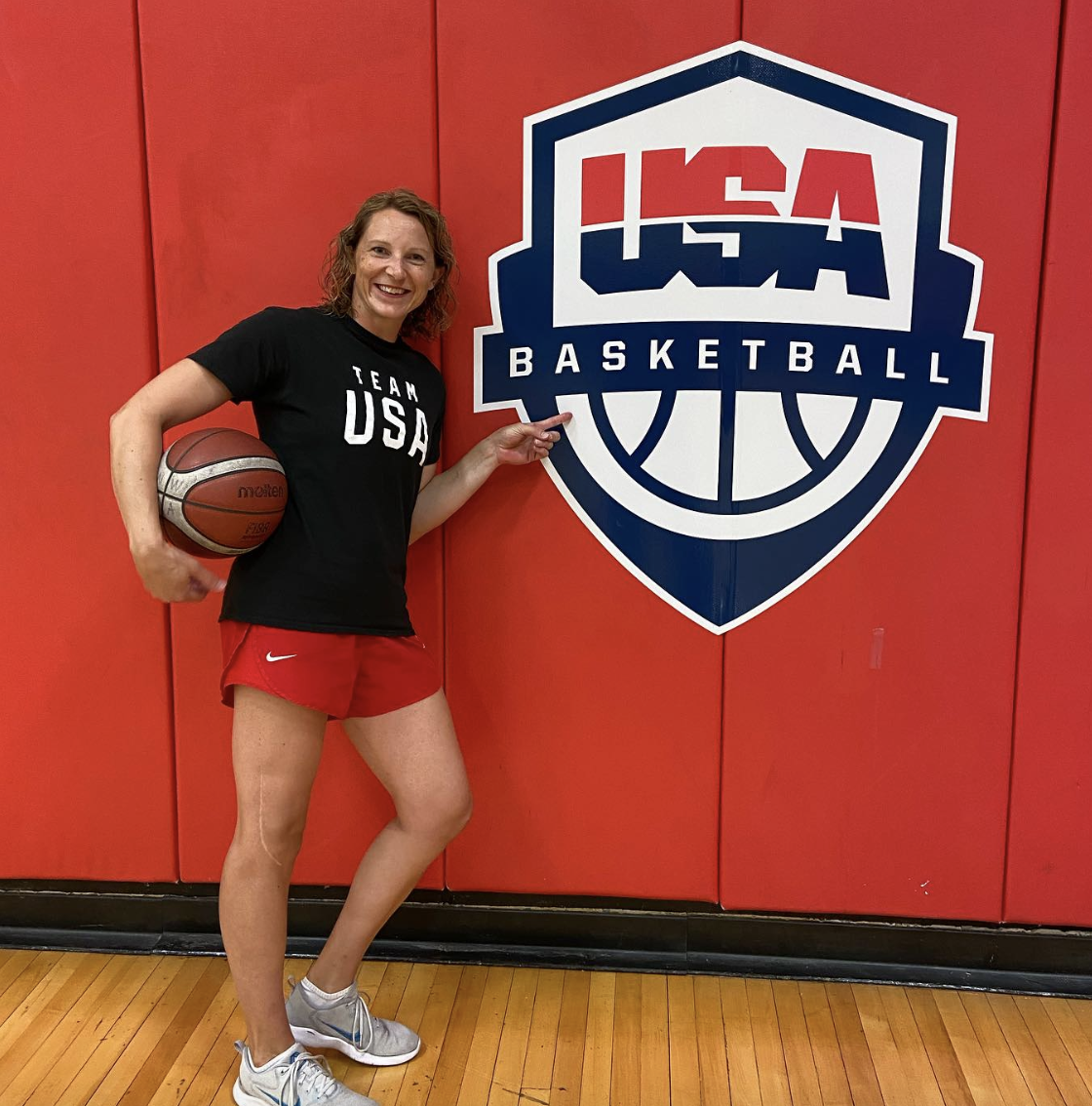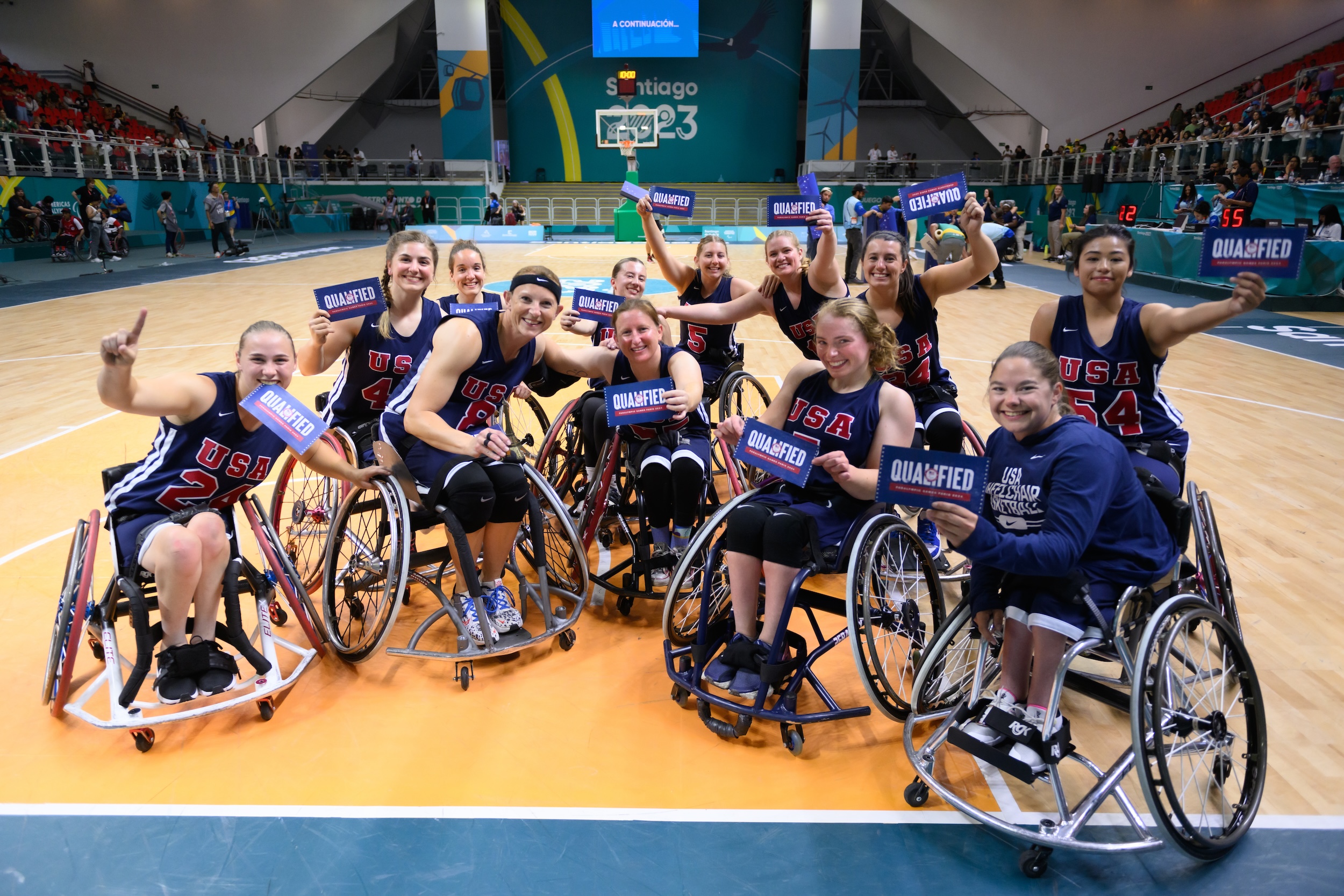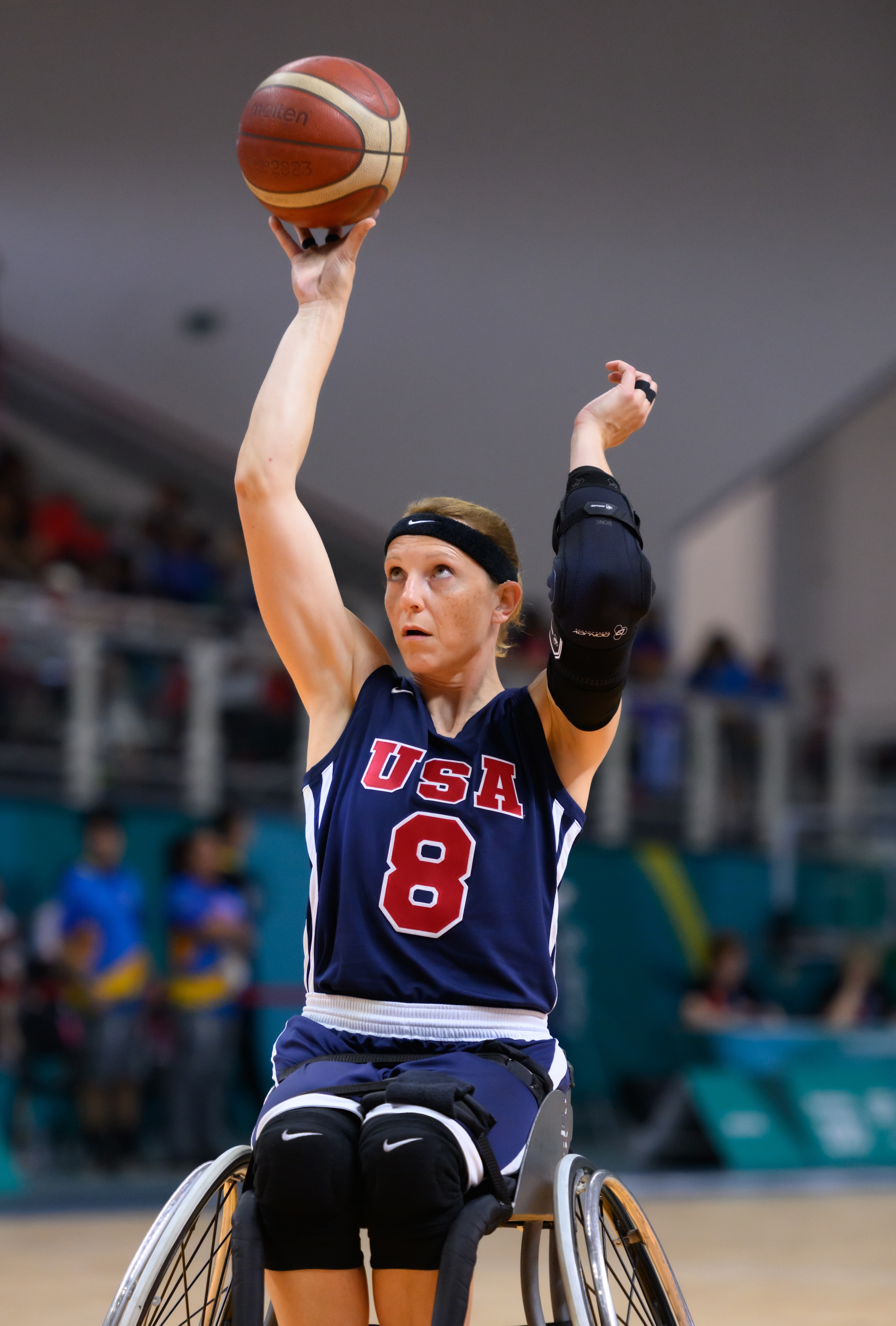
Written by Sara Hinds
“Who here has heard of the Paralympics?” Natalie (Nelsen) Schneider ’05 asked the basketball team made up of seventh grade girls in spring 2024.
Every player raised their hands. There’s no way, Schneider thought. She made her first Paralympics team in 2008, and back then nobody knew what it was.
“That’s like the Special Olympics, right?” was a common response. Schneider would correct them — just as amazing, but completely different.
Schneider rephrased her question.
“Ok, who had heard of the Paralympics before your coach told you I was coming?”
But their coach hadn’t warned the girls that a four-time Paralympian (two-time gold medalist, one-time bronze medalist) was visiting them.
That awareness is important, Schneider said. For six years as a teenager, she didn’t know. Not just about the Paralympics, but of opportunities for kids who face cancer, life-altering injuries or are born with disabilities to play sports.
“You learn so, so much about life just by playing sports,” Schneider said. “No matter what level you're playing, you can learn a lot about how to treat people and how to work together.”
Schneider was born to play sports. Her dad, Dennis Nelsen ’67, coached basketball at Crete High School after playing for Doane University where he earned three MVP honors.
“The day I was born was basketball game day [for him],” Schneider said fondly. Her dad passed away from Parkinson’s after the Tokyo Paralympics. “He came to the hospital when I was born. And then he went and coached a basketball game that night. I was really born into basketball.”
Growing up, she and her two siblings attended the shooting camps their dad hosted. As a sophomore at Crete High School she helped the team reach the state tournament.
Basketball and Schneider just made sense. It was an easy layup, until it wasn’t.
Bone cancer. The summer after her sophomore year. Ten months of chemotherapy and ultimately a surgery that replaced half of her femur and her knee-joint with a titanium prosthesis. She could walk, but was told she couldn’t run or jump anymore.
“I identified as an athlete, and so losing that in high school at 16 was really, really hard,” Schneider said. “I didn't know who I was anymore.”
Ever the athlete, getting knocked down only meant Schneider would rise again, stronger. Her mom, Nancy, and dad found other outlets their daughter could try to love just as much as basketball. Golf, choir, school. Nothing was hitting.
Until her mom saw a newspaper article about sitting volleyball. Team sports with the camaraderie was what had been missing. A few months later, Schneider discovered wheelchair basketball.

Five Paralympics later she still loves it. Paris is supposed to be her last Games, right?
“Yeah,” Schneider laughed. “I think I really mean it this time.”
She earned a master’s degree in statistics and worked as a statistician for a while, ultimately deciding to commit full time to family and basketball. She lives in Syracuse, Nebraska, with her husband, Dan (a 2003 Doane graduate) and their three daughters. And she travels the world playing professional wheelchair basketball in the Paralympics, world championships, Parapan American Games and more.
While her professional career is winding down, sports will stay at large in her life. She’s currently working toward her personal trainer certification. She’ll also have more time to coach youth basketball and train young athletes.
“I didn't expect to be playing at a high level in my late 30s,” Schneider said. “And now I'm 41 and I'm still keeping up with the 20-year-olds on the court. So I'm like, ‘Well, hey, why not?’”
Her daughters are her biggest motivators, though. They help Schneider practice. They’re learning the important lessons you learn from sports, like hard work pays off. They’re learning about the adaptive sports community, experiencing global travel and watching the meteroic growth of women’s sports.
And her dad’s MVP trophies from Doane sit on a shelf at her house, viewable from her training area. A reminder of her initiation into the world of basketball at birth while she trains to accomplish more than she ever realized she could.

Wheelchair Basketball Strategy
- There’s no double dribble foul
- Speed is more important than height
- Players are rated with a classification system based on their impairment(s). The lower their class, the more severe the impairment.
- The classification point total of the five players on the floor cannot exceed more than 14.
- Schneider has the highest classification possible (4.5)
- “If I can get right behind a teammate who's a class one, we do something called a seal,” Schneider said. “I can follow them right to the basket and the defense can't stop me without stopping my teammate’s chair. It's almost like a little train that goes through to get me in the key.”

